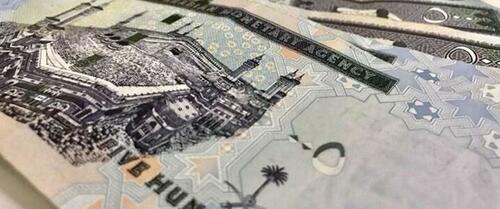Submitted by Julianne Geiger of OilPrice.com,
Saudi Arabia’s grand Vision 2030 ambitions may be colliding with a colder fiscal reality.
Fitch Ratings warned Friday that Riyadh faces rising financial risks as oil prices soften and government spending balloons, threatening the kingdom’s plans for fiscal consolidation.
The numbers tell the story: Saudi Arabia now expects a budget deficit equal to 5.3% of GDP in 2025—nearly double its original 2.3% forecast—before narrowing to 3.3% in 2026.
The deterioration comes largely from weaker oil income, Fitch said, with non-oil revenues holding up but not enough to offset the gap. The rating agency pointed to revenue shortfalls and overspending as the main culprits, noting the massive capital outlays required by megaprojects like NEOM.
This week’s pre-budget statement from Riyadh signaled a shift toward tighter fiscal discipline, but Fitch noted the tension between Saudi’s promises of restraint and its reliance on the Public Investment Fund’s trillion-dollar Vision 2030 agenda.
That tension is only magnified by sliding crude prices, with Brent down more than 7% this week on speculation of further OPEC+ supply hikes.
Those hikes are themselves controversial. Reuters sources have floated that Saudi Arabia wants much larger quota increases than Russia, moves that could win back market share but put additional pressure on oil prices. OPEC has already lashed out at the newswire, dismissing reports of a half-million-barrel increase as “wholly inaccurate.” Yet the clash illustrates the stakes: Saudi Arabia’s fiscal health depends on a stable oil market, but its production strategy is geared toward defending long-term relevance, even if that risks lower near-term prices.
Fitch said fiscal tightening would ultimately come through modest spending cuts, stable oil revenues, and continued growth in non-oil income. But the kingdom’s vulnerability to oil price swings remains obvious. Vision 2030 may be designed to break the dependence on crude—but for now, Saudi Arabia’s books are still hostage to it.
Loading recommendations...
